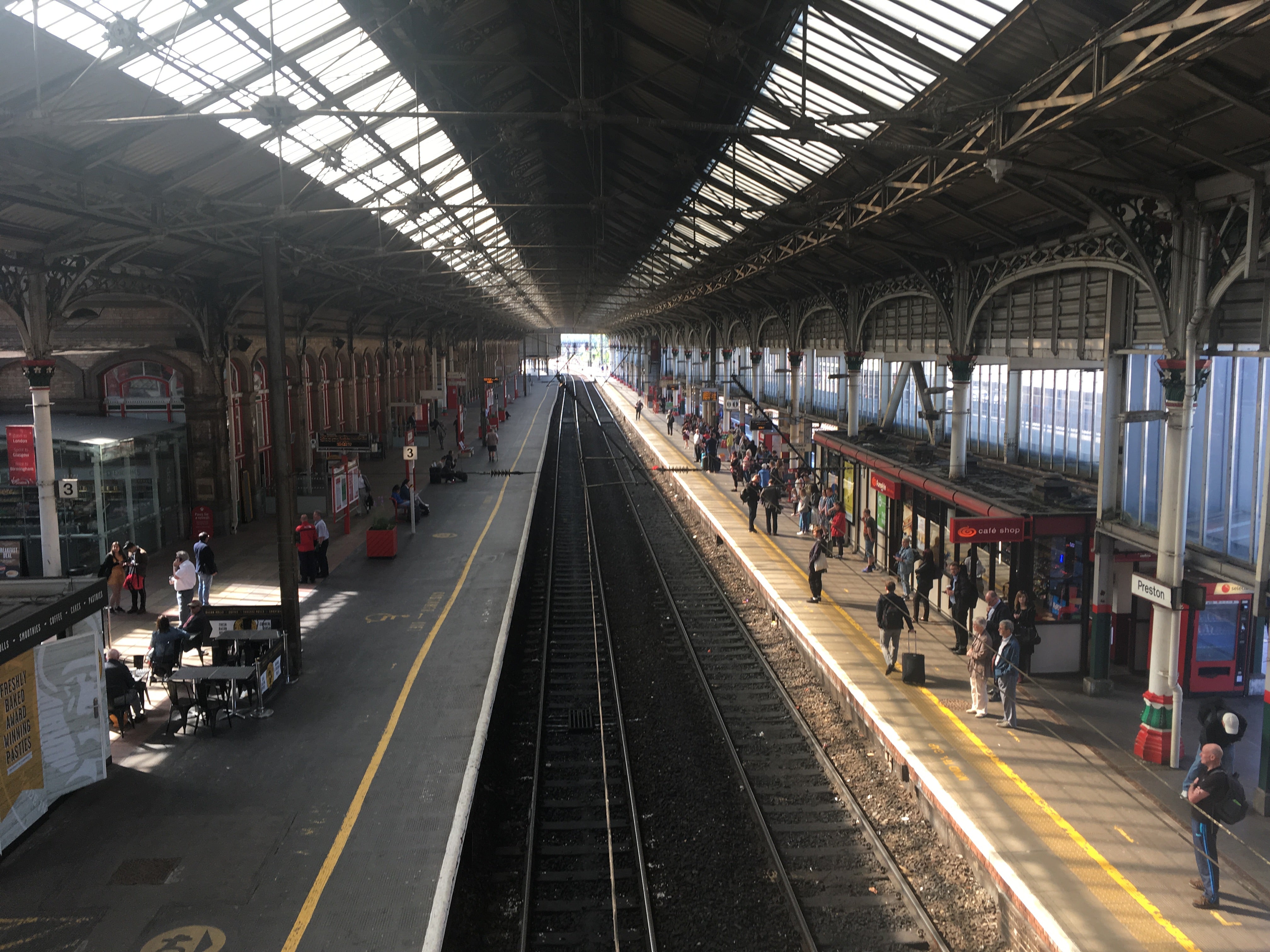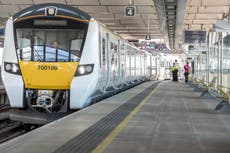Rail privatisation ends as taxpayer picks up coronavirus costs of running empty trains
Franchising has been replaced by what one critic calls the ‘dead hand of government’

Your support helps us to tell the story
From reproductive rights to climate change to Big Tech, The Independent is on the ground when the story is developing. Whether it's investigating the financials of Elon Musk's pro-Trump PAC or producing our latest documentary, 'The A Word', which shines a light on the American women fighting for reproductive rights, we know how important it is to parse out the facts from the messaging.
At such a critical moment in US history, we need reporters on the ground. Your donation allows us to keep sending journalists to speak to both sides of the story.
The Independent is trusted by Americans across the entire political spectrum. And unlike many other quality news outlets, we choose not to lock Americans out of our reporting and analysis with paywalls. We believe quality journalism should be available to everyone, paid for by those who can afford it.
Your support makes all the difference.Twenty-four years after rail privatisation began, the UK’s system of train-operating franchises has hit the buffers – with the government making “the first step in bringing Britain’s fragmented network back together".
British Rail was broken up and its components put up for tender by John Major’s government in the late 1990s.
The business model has been wrecked by the coronavirus pandemic, with passenger concerns and government warnings leading to a collapse in use and fare revenues.
The Department for Transport (DfT) has now said franchising arrangements will be replaced by “a simpler, effective model through high performance targets and simplified journeys”.
The government said this represents the “first steps to a network that puts passengers back in control”.
The transport secretary, Grant Shapps, said: “The model of privatisation adopted 25 years ago has seen significant rises in passenger numbers, but this pandemic has proven that it is no longer working.
“Our new deal for rail demands more for passengers. It will simplify people’s journeys, ending the uncertainty and confusion about whether you are using the right ticket or the right train company.
“It will keep the best elements of the private sector, including competition and investment, that have helped to drive growth, but deliver strategic direction, leadership and accountability.
“Passengers will have reliable, safe services on a network totally built around them.”
Rail operators have been running trains under “emergency measures agreements" since the start of the crisis. For the next 18 months, they will continue to be supported by the taxpayer.
From today, existing agreements have been replaced by "emergency recovery management agreements”.
Train operators will earn a maximum of 1.5 per cent for management agreements that "have tougher performance targets”.
But Sir Michael Holden, former train operator and Network Rail executive, told the BBC Today programme that the new plan was “the worst possible arrangement to run the railways”.
He said: "We’ve got the dead hand of government on the helm, controlling all of the detailed decisions of the railway, and yet they're still paying private-sector operators to run the railway for them.”
Paul Plummer, chief executive of the Rail Delivery Group, representing train operators and Network Rail, said: “These transitional contracts should be a stepping stone to a better railway.
“This needs to harness the experience, innovation and investment private sector operators bring, with local train companies taking the decisions that affect their passengers.
“It should be overseen by a new guiding mind for the whole industry and underpinned by a simpler-to-use fares system.”
This echoes the view of Keith Williams, the former chief executive of British Airways. In 2018, he was was asked to review the railways after a chaotic timetable change and the failure of some franchises.
His report has not yet been published, but a white paper is promised that will “respond to his recommendations”.
Mr Williams said: “I am ensuring the recommendations I propose are fit for a post-Covid world, but these contracts kickstart a process of reform that will ensure our railways are entirely focused on the passenger, with a simpler, more effective system that works in their best interest.”
Britain’s first privatised train service was a bus. In the early hours of 4 February 1996, a handful of passengers travelling from Fishguard to Cardiff in south Wales found themselves on the A40 trunk road on a rail-replacement service.




Join our commenting forum
Join thought-provoking conversations, follow other Independent readers and see their replies
Comments